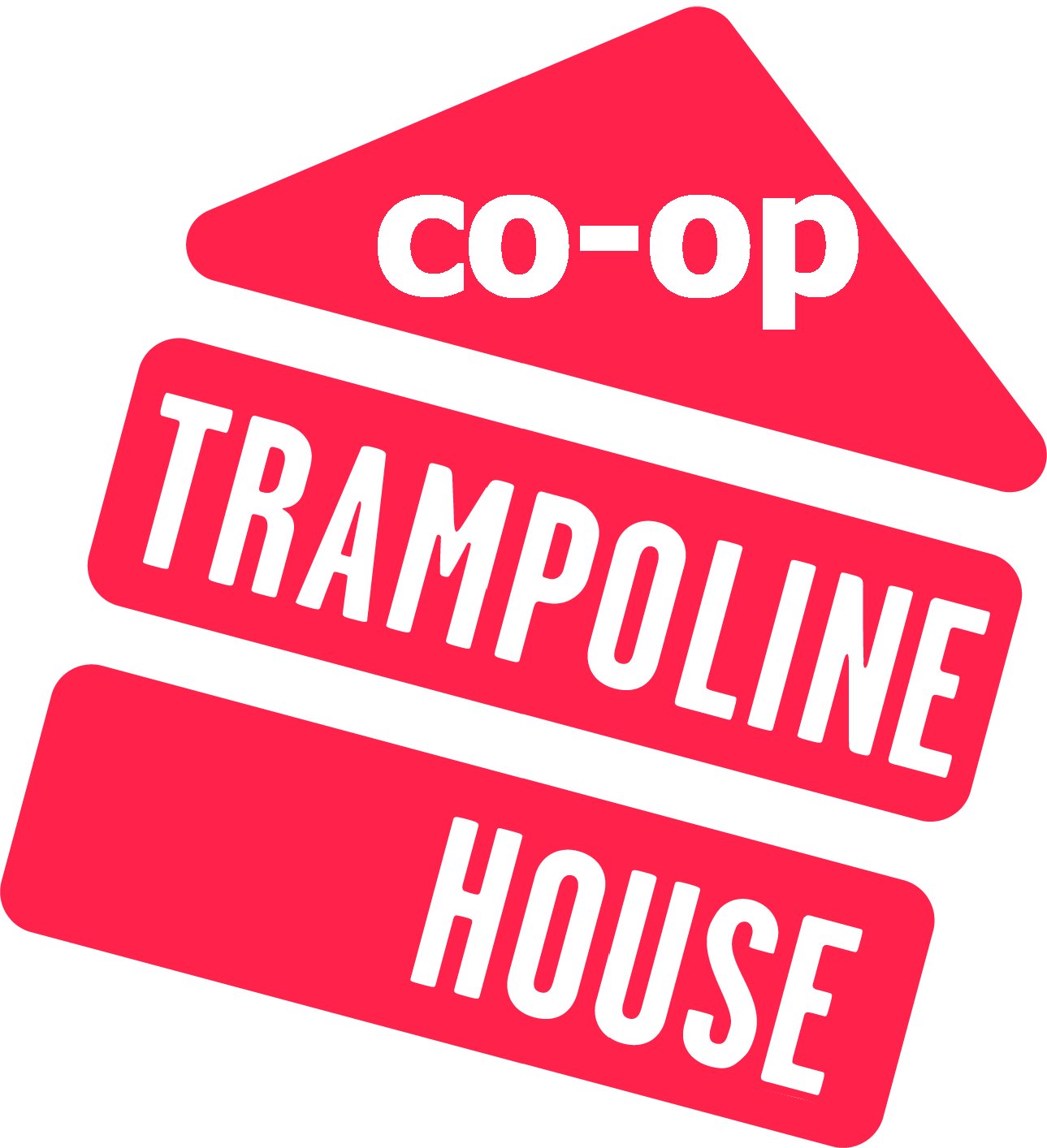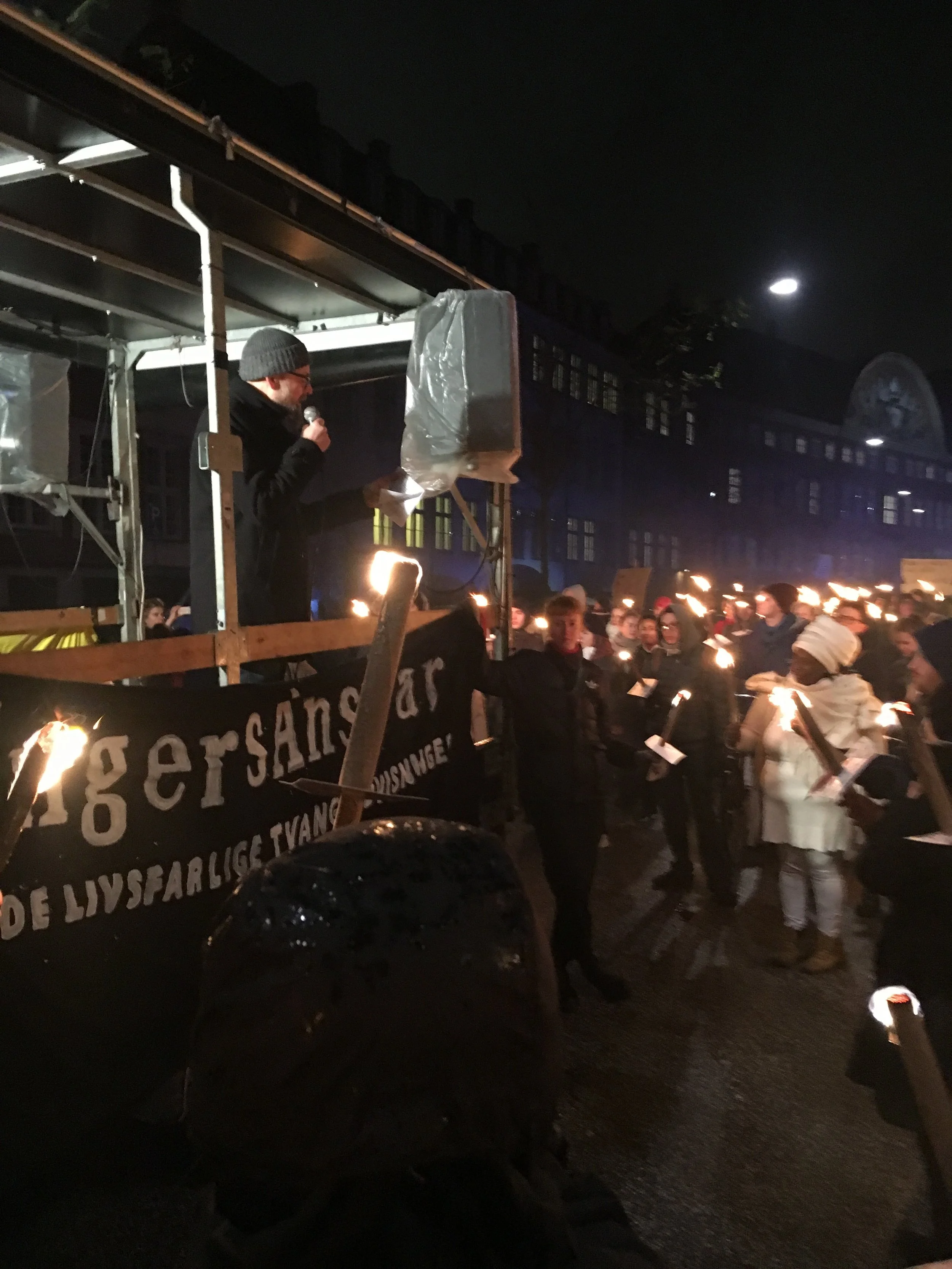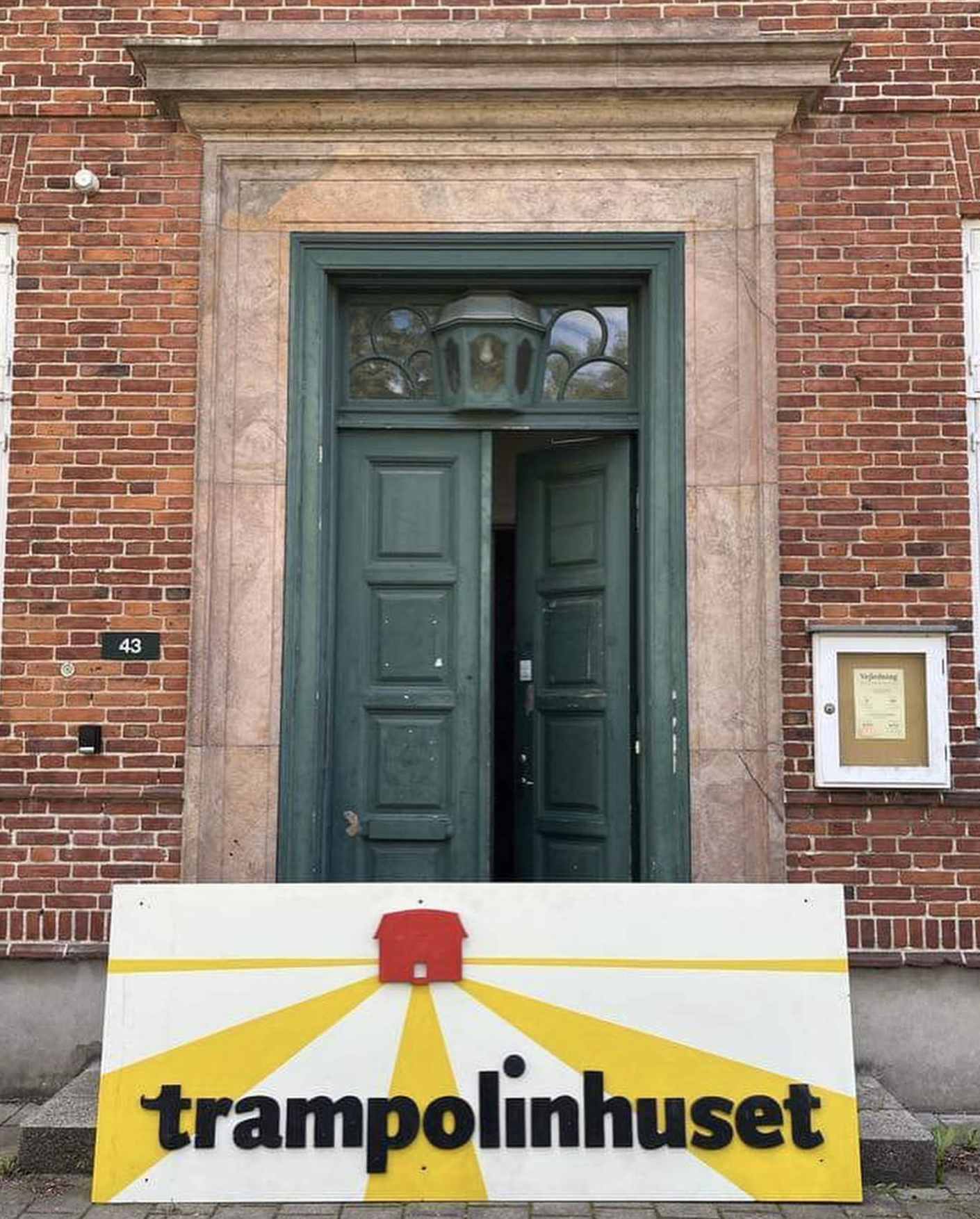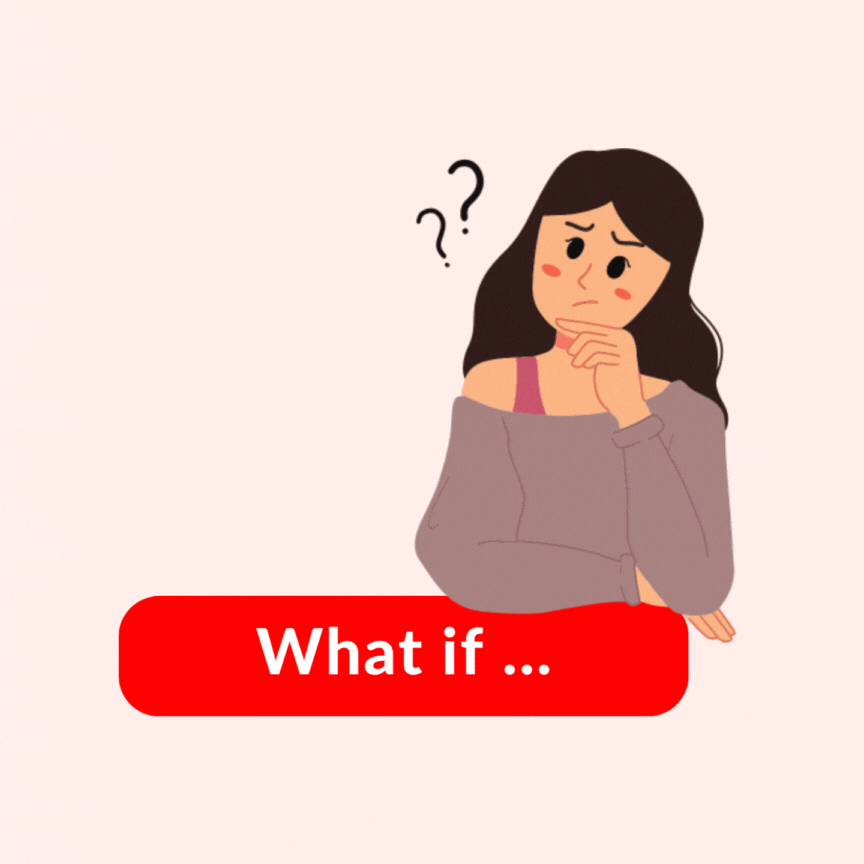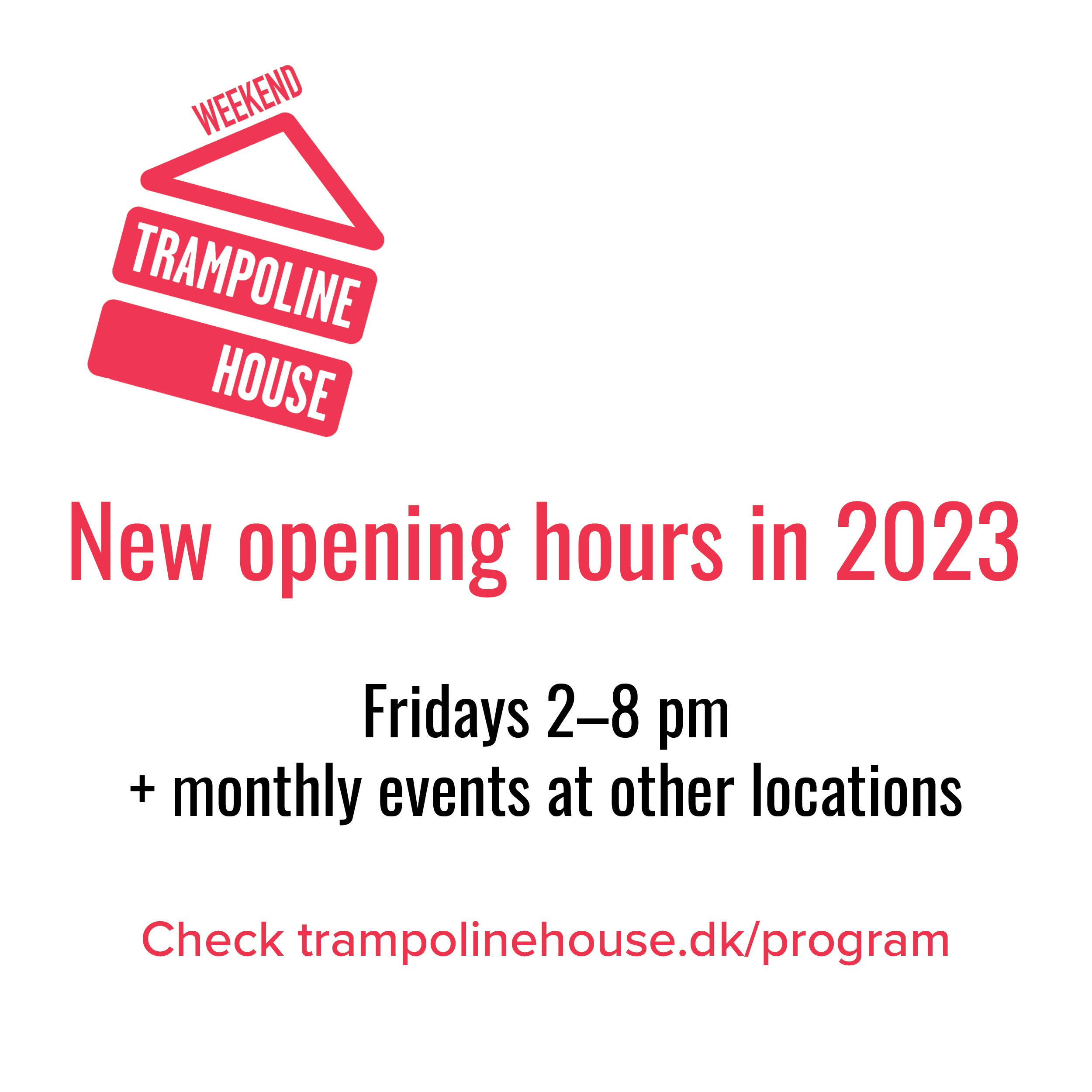Speech at demonstration and memorial service for deceased asylum seeker
Klik her for dansk
By Morten Goll, Founder & Director of Trampoline House. November 28, 2017.
We are gathered here today to mark our grief over the loss of a life. An Algerian man of 34 years lost his life on November 22, after the police tried to deport him against his will on November 20. He never recovered from meeting the Danish authorities in charge of his deportation.
I sincerely hope that it’s not the case that the Danish police are responsible. But, like Claus Juul from Amnesty International, we need to insist that this deportation process will be thoroughly examined. We know that the Independent Police Complaints Authority and the Ombudsman are on the case, and Trampoline House will be in contact with the Ombudsman to make sure the case is being properly attended to.
For now, everything indicates that it was meeting the Danish police that ended his life.
What does this mean? The Danish society has constituted itself in a way that caused a man, who sought a life with us, to lose it instead.
As one of the founders of Trampoline House, I’ve followed Danish asylum politics closely since 2009.
During the last few years, we’ve witnessed a shift in focus. The system is now being designed with deportation as its end goal instead of integration. We see this in the deportation camps’ deliberately unbearable conditions, in the ‘regular’ camps, where including activities have been cut from the budgets. By default, these unwanted citizens are being minimally included because rejection and deportation is the wanted end game.
Even if I get asylum, and integration should be the next point on the agenda, we see our politicians in parliament speaking of deportation as the wanted end goal. An obvious example of this are all the Somalis who have been granted asylum since 2012, and who’ve fought for their integration, but whose cases have recently been reopened by the Immigration Service with the aim of deportation.
In order for our politicians to justify their policies, they have to create a strong narrative based on a ’them’ and an ’us’. ‘They’ are not like ‘us,’ therefore we don’t have room. Denmark is in the process of dehumanizing refugees and migrants. They are made into unwanted bodies that aren’t considered as equal human beings. And their bodies represent a logistic problem. They must be deported because they’re piling up around us. When the unwanted body refuses to cooperate, and manifests itself as an independent, thinking human being, the catastrophe happens. On November 20, a 34-year-old man chose to insist on his humanity, and he paid with his life.
What does that make us? It was our system that denied him. It was him who paid with his life, so let’s share a moment of silence for a person who insisted on being one of us.
Some people will surely ask: Who was he? This man who, 34 years old, refused to leave voluntarily to Algeria? I didn’t know him. Should the man have gotten asylum? Was it okay that he was rejected by the Immigration Service? Did he have a good or a bad reason for coming to Denmark?
It really doesn’t matter. Everyone, including Minister of Immigration Inger Støjberg, agree that it’s not worthy of a democracy to take the lives of unwanted citizens. Period.
And one thing is certain: I might as well have known him. There are lots of people here today who could’ve been in his place.
It’s a catastrophe, but not only for the victim. For the rest of us, who are part of the democratic community. It means something, what his death makes us. It’s not just Inger Støjberg who’s responsible for this. It’s all of us. And that’s why we’re here today. To honor the deceased, and to manifest that we don’t want any more unwanted deaths. A democracy is a community that rests on equality before the law and mutual respect. A democracy’s health is to be measured by how it treats the most vulnerable ones: the minority, those without voting rights, the weakest.
When we compromise democracy’s founding principles, democracy breaks. Thus, it’s not just a problem for the rejected asylum seeker that his or her rights aren’t respected. It’s a problem for the rest of us, who are part of the community. That’s why large parts of society bid our new citizens welcome: Your arrival shows us a blind spot in our democratic practice. We need you to help us create a better and more inclusive democracy.
Our democracy cannot survive if we reduce all of those, who live outside the Western world, to bodies that can be disposed of. That will be the downfall of the Western world. Democracy degenerates within the walls of Fort Europe, and it will break under the pressure that’s building up outside those walls. It’s a process that’s already underway. Democracy is a fragile indoor plant that needs nurturing and care. And it’s us, the civil society, that have to do the job. We cannot leave this task to the politicians in parliament. And it’s us who have the opportunity to welcome the men, women and children who choose to join us.
Last, I want to give the politicians some practical advice. You must ask yourselves why it’s so hard to make people leave?
The catastrophic result of the forced deportation on November 20 is only the tip of the iceberg. What will happen for the hundreds of rejected asylum seekers who no longer count in the Immigration Service’s statistics because they went underground? Who live as homeless all over Denmark?
Why have only four of the rejected asylum seekers from deportation center Kærshovedgaard returned home voluntarily, when more than 200 people are still stuck there, many for more than one and a half year? Not even the unbearable conditions are unbearable enough to make people chose the destiny they once escaped from. The system is not working!
My first advice is to stop the forced deportations immediately. It’s a shame on our democracy, and it’s lethal to the victims.
My second advice is to quit the Dublin regulations, which stipulate that you can only apply for asylum in one EU country. The Dublin regulations would be all right if the case assessment were the same in all countries, but as long as there are mistakes in the case assessments and every country has its own assessments of which refugees deserve asylum the most, the Dublin system won’t be a fair system. Being stuck in Kærshovedgaard or Sjælsmark is for a lot of people like being asked to choose between two evils. Either you can rot in unbearable conditions or go home to face your greatest fear.
And from this follows my final piece of advice to the politicians today. We should find out what really happens to the people that do repatriate. If we can understand why they’re so scared of returning, maybe we could find a solution that’ll work for all parties.
Thank you.
